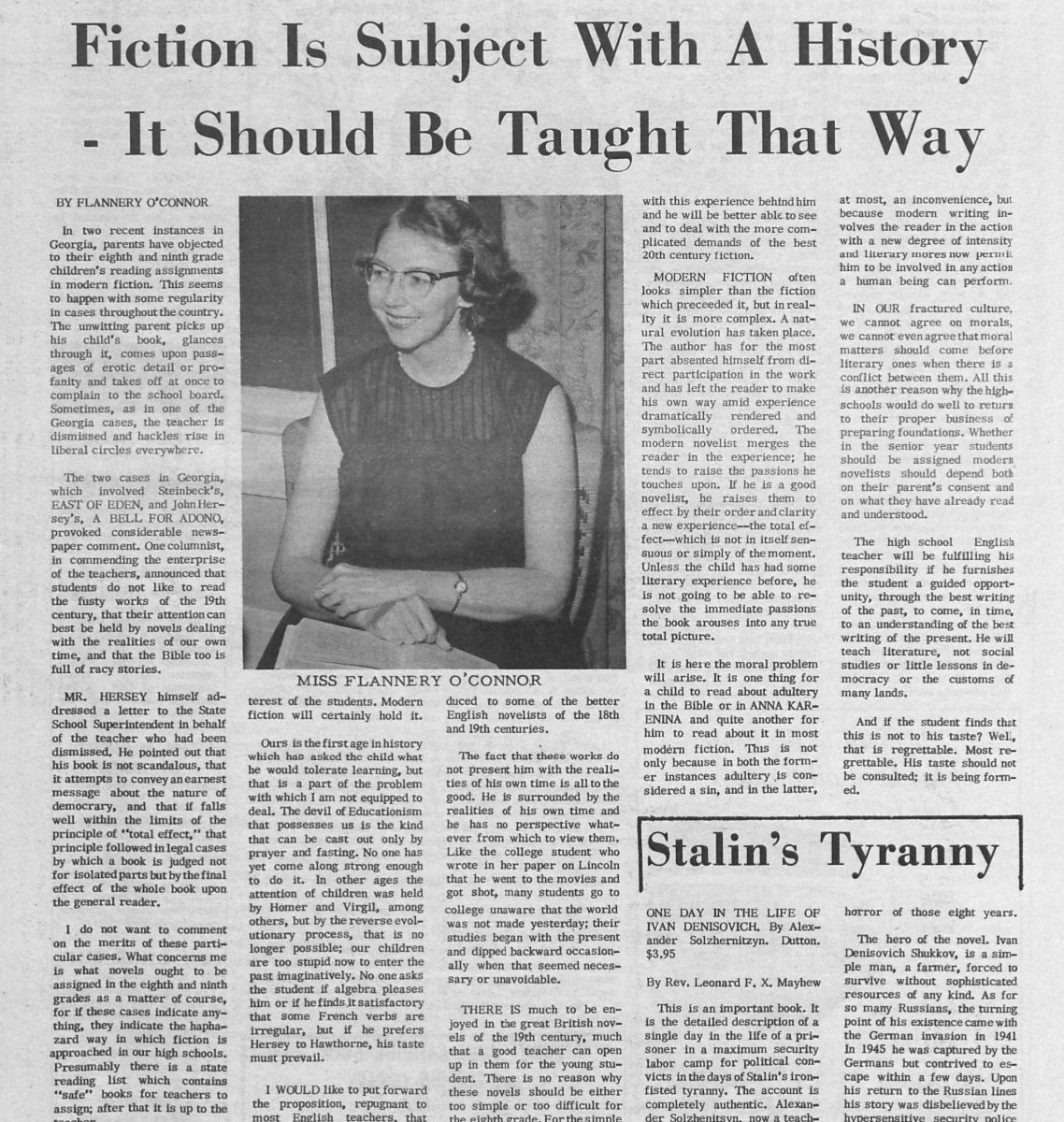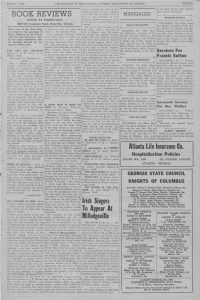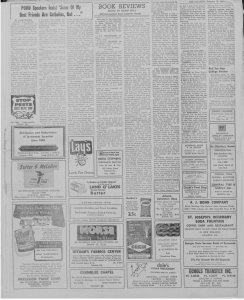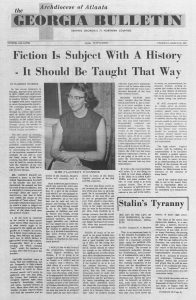by Daniel Britt, Mandy Mastrovita, and Donnie Summerlin
The Digital Library of Georgia, in conjunction with our partners at the Roman Catholic Diocese of Savannah, recently digitized the historic Bulletin newspaper (1920-1962) and made it publicly available on the Georgia Historic Newspapers website.
The Bulletin was first published in January 1920 as the official organ for the Catholic Laymen’s Association of Georgia and shortly became Georgia’s leading Catholic newspaper.
In 1963, the publication split into two separate diocesan papers, the Bulletin (Archdiocese of Atlanta) and the Southern Cross (Diocese of Savannah). Among the paper’s vast array of content, it [still] includes reviews of Catholic written works.
From 1956 to 1964, Georgia writer Flannery O’Connor regularly contributed to the paper’s book reviews section. However, her first appearance in the publication was where she was credited as a budding cartoonist.
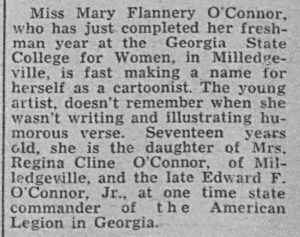
Stephanie Braddy, Director of Archives & Records Management, Catholic Diocese of Savannah, notes that for O’Connor researchers “the articles offer further insight into Ms. O’Connor’s wit and personality, as well as her firmly held beliefs related to writing, and Catholicism.”
Well-known as a devout Catholic, she reviewed 143 titles spanning genres in both nonfiction and fiction, but, more specifically, she almost always explored Christian subject matter.
As evidenced by her desire to review works by controversial figures such as the French Jesuit priest and scientist Pierre Teilhard de Chardin, O’Connor displayed a deep interest in increasing her intellectual engagement with Catholicism.
Matt Davis, Director of Historic Museums at Georgia College & State University, observes that : “Flannery O’Connor kept a very strict schedule during the last years of her life in Milledgeville. “Rising early to attend mass, she would then spend the remainder of her morning writing as her health allowed. With easy online access to O’Connor’s work in The Bulletin, the public and scholars of all levels have been provided another window to show how her faith and writing intertwined.”
These reviews were intended for a Catholic audience and focused on religious topics. As a result, they provide insights into O’Connor’s writing process not readily found in her works of fiction.
In his introduction to Leo J. Zuber’s compilation of O’Connor book reviews The Presence of Grace and Other Book Reviews by Flannery O’Connor, Carter W. Martin remarks, “one of the pleasures. . . is to savor the quality of Flannery O’Connor’s mind at work on the serious intellectual content of her faith. Here is confirmation, if we need it, that her art arose from religious convictions that she subjected to intense scrutiny not only in her heart but in her mind as well.”
Below, we’ve curated select pages from the Bulletin featuring writing by and about Flannery O’Connor. The paper’s run is available on the Georgia Historic Newspapers website, https://gahistoricnewspapers.galileo.usg.edu/lccn/gua1449731/ , and O’Connor’s appearances have been gathered together here.
Selected images:
O’Connor’s first book review appeared in the Bulletin’s March 3, 1956 issue, an issue in which her collection of short stories, entitled ‘A Good Man is Hard to Find,’ was also reviewed. Regarding her first book review, O’Connor noted to Notre Dame professor John Lynch, “As for fiction, the motto of the Catholic press should be: We guarantee to corrupt nothing but your taste.”
In an unusually lengthy three-column Bulletin article, O’Connor reviewed Pierre Teilhard de Chardin’s ‘The Phenomenon of Man.’
A front-page editorial for The Georgia Bulletin’s book supplement section, by O’Connor, entitled “Fiction is Subject With A History – It Should Be Taught that Way.” She argues the importance of a firm understanding of the past, writing that “many students go to college unaware that the world was not made yesterday…”

